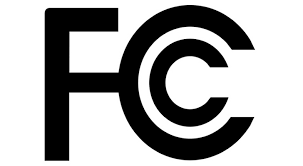There is something wrong with a culture that reduces its citizens to consumers. Citizens should be free agents; they must be more than moving targets for marketers pushing products.
The current news about the Federal Communications Commission’s intent to end enforcement of ‘net neutrality’ rules next month may seem like an arcane shift in policy. No doubt Americans may have more pressing concerns. But the proposed action to end the requirement that portals require easy access to all internet sites is troubling. It represents nothing less than the slow drift of American policy-making toward oligarchy, or the dominance of the culture by the favored and the rich. Under the new rules, there is the potential for educational and informational sites to be devalued by service providers in favor of sites that can pay for special treatment, meaning faster “load” rates and ease of searching. Indeed, under the new rules, a site may be ignored completely. Full disclosure here: I and other non-commercial sites will be negatively affected because we are not selling things. Wikipedia, bloggers, think tanks, non-profit resources like the Pew Research Center will be put at a disadvantage. By contrast, Amazon.com, Walmart and streaming services who sell content have nothing to fear.
Defenses of the change heard from the FCC and supporters almost always mention how the policy change will benefit “consumers.” These days the presumption is that the internet is the premier venue for selling products and services. But as important the internet of things has become, we must not forget the internet of ideas. Indeed, the original reason for inventing “hypertext” and a network of networks in the 1980s was to ease the ability of researchers to communicate with each other and share their work. Online selling would come much later.
There is something wrong with a culture that reduces its citizens to consumers. Citizens should be free agents; they must be more than moving targets for marketers pushing products. We need only look to China to see how this shift in policy could play out.
The Chinese standard of living has risen dramatically. Friends who grew up in China report that they are both amazed and appalled to revisit the country and find friends who have become rabid materialists. They live to shop and acquire “prestige” products. For the middle class, the Communist state has become a haven of consumerism. At the same time, political discussion on the web is risky. Chinese authorities regularly prosecute citizens for espousing views hostile to the party or its leaders. And a “Great Fire Wall” has descended that makes it nearly impossible to read online materials that represent the internet of ideas: allegedly “extreme” stories coming from the BBC, the New York Times, or local bloggers concerned about crime or political corruption. By and large, American companies doing business there accept these rules as the price to pay for access to lucrative markets.
To be sure, we are not a one-party state like China. But the FCC decision will move us closer to being a culture where large corporate internet providers will have the power to monitor and censor sites deemed less worthy or less willing to pay for access. What may be a boon for American business may come at the cost of the public discussion of ideas.
